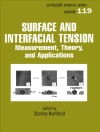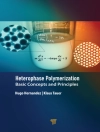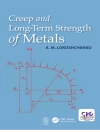Since the first edition was published in 2008, Atomic Layer Deposition (ALD) has emerged as a powerful, and sometimes preferred, deposition technology. The new edition of this groundbreaking monograph is the first text to review the subject of ALD comprehensively from a practical perspective. It covers ALD’s application to microelectronics (MEMS) and nanotechnology; many important new and emerging applications; thermal processes for ALD growth of nanometer thick films of semiconductors, oxides, metals and nitrides; and the formation of organic and hybrid materials.
Table des matières
Acknowledgements ix
Foreword xi
Preface xiii
1 Fundamentals of Atomic Layer Deposition 1
1.1 Chemical Vapour Deposition 1
1.1.1 Thermal CVD 2
1.1.2 Plasma Enhanced CVD (PECVD) 5
1.2 Vapour Adsorption 6
1.3 Atomic Layer Deposition (ALD) 10
References 29
2 Elemental Semiconductor Epitaxial Films 33
2.1 Epitaxial Silicon 33
References 49
3 III-V Semiconductor Films 51
3.1 Gallium Arsenide 51
3.2 Other III-V Semiconductor Films 63
3.3 Applications 64
References 65
4 Oxide films 67
4.1 Introduction 67
4.2 Aluminum Oxide 68
4.3 Titanium Dioxide 81
4.4 Zinc Oxide 96
4.5 Zirconium Dioxide 101
4.6 Hafnium Dioxide 107
4.7 Other Oxides 112
4.8 Mixed Oxides and Nanolaminates 124
4.9 Multilayers 150
References 151
5 Nitrides and Other Compounds 161
5.1 Introduction 161
5.2 Nitrides 162
5.3 Chalcogenides 176
5.4 Other Compounds 179
References 179
6 Metals 183
6.1 Introduction 183
6.2 Noble Metals 184
6.3 Titanium 193
6.4 Tantalum 196
6.5 Aluminum 198
6.6 Copper 200
6.7 Other Transition Metals 203
References 204
7 Organic and Hybrid Materials 207
7.1 Introduction 207
7.2 Organic layers 208
7.3 Hybrid Organic-inorganic Layers. 209
7.4 Applications of Organic and Hybrid Films 212
References 213
8 ALD Applications and Industry 215
8.1 Introduction 215
8.2 MEMS/NEMS 217
8.3 Thin Film Magnetic Heads 223
8.4 Coating Nanoparticles, Nanomaterials and Porous Objects 224
8.5 Optical Coatings 226
8.6 Thin Film Electroluminescent Displays 228
8.7 Solar Cells 229
8.8 Anti-corrosion Layers 231
8.9 Opportunities in Organic Electronics 234
8.10 ALD Tool Manufacturers and Coating Providers 236
References 238
Index 243
A propos de l’auteur
Tommi Kääriäinen is a researcher at the
Advanced Surface Technology Research Laboratory (ASTRa L) in
Lappeenranta University of Technology (LUT), Finland. He has over
nine years of experience in thin film deposition and analytical
techniques. He has especially focused on atomic layer deposition
(ALD) at low temperatures and recently on spatial and roll-to-roll
ALD.
David Cameron received his BSc in electrical and
electronic engineering from the University of Glasgow in 1972. In
2004, he joined LUT as Professor of Material Technology and
Director of ASTRa L. His research career has been in the area of
thin film deposition and since joining ASTRa L, his work has focused
on ALD. He has also worked on molecular beam epitaxy, plasma
chemical vapour deposition, magnetron sputtering, and sol-gel
deposition.
Marja-Leena Kääriäinen has conducted ALD
research for over 10 years. Her focus has been on the growth and
structure of nanoscale metal oxide films. She has a particular
interest in the photoactivity, photocatalytic activity, and
antibacterial properties of ALD-grown thin films. Her background is
in chemical engineering, which she studied at LUT and Michigan
Technological University. Currently, she is a researcher at
ASTRa L.
Arthur Sherman has 60 years of industrial experience,
which includes almost 20 years with General Electric, seven years
on the corporate staff of RCA, several years at Applied Materials,
and six years at Varian Associates. He earned a master’s degree in
aeronautical engineering at Princeton University and a Ph D at the
University of Pennsylvania. He has published extensively, including
approximately 50 research papers published in archive journals and
three scientific monographs.












